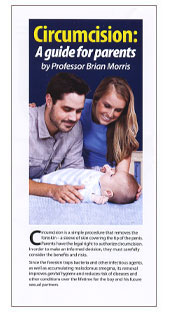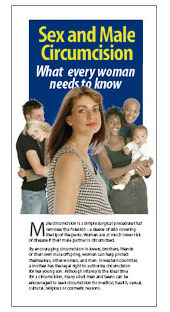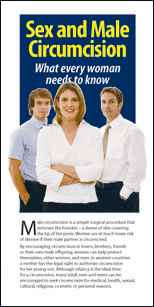Psychological Aspects, Including
Breastfeeding Outcomes and Cognitive Ability
Speculative claims that circumcision has an adverse effect on breastfeeding outcomes have been disproven by research. A well-designed longitudinal study in New Zealand of 636 neonates examined annually at age 1 to 16 years and at ages 18, 21 and 25 years found no difference between circumcised and uncircumcised boys in the following: starting breastfeeding, breastfed at 1 month of age, exclusively breastfed at 4 months, stopping breastfeeding due to poor response, duration of breastfeeding) [Fergusson et al., 2008]. (See also [Moreton 2019 psychological damage].) There was also no difference in the following conditions concerning child health: gastrointestinal problems, lower respiratory illness, eczema, asthma (for ages 0–2 years), and cognitive ability outcomes later in childhood (namely, IQ at ages 8–9 years and scholastic ability scores at age 13). This well-designed birth cohort study involved 1,000 males in New Zealand born in the early 70s. In fact respiratory tract infections in uncircumcised infants in this study were twice as high as in the circumcised (21% vs. 11%).
Similarly, a study in Turkey found no difference in feeding frequency, nor in urination, stooling and serum bilirubin between 30 boys circumcised 2 days after birth compared with 30 not circumcised [Erog˘lu et al., 2008]. There were two who developed jaundice, but they were in the uncircumcised group.
A study in 2017 found no evidence that circumcision causes lasting brain changes, nor that it causes psychological trauma [Ullmann et al., 2017]. A longitudinal study in the UK, beginning in 1946, of more than 5,000 individuals followed from birth to age 27, found no difference in developmental and behavioural indices between circumcised and uncircumcised males [Calnan et al., 1978]. These consistent findings in different populations support an absence of an effect of circumcision on cognitive ability. In Swedish schoolboys circumcised for phimosis, no signs of psychological problems were found apart from “shyness and unwillingness to undress in school gym” in a setting in which circumcision is uncommon [Stenram 1986a,b]. A study “examined 43 discreet behaviours relating to feeding, gaze, facial expression, vocalizations and touch” in the first 24 hours post-circumcision comparing 27 newborn infants circumcised without anesthesia with 32 uncircumcised infants (who were circumcised subsequent to the 24 hour study period) [Marshall et al., 1982]. The study “revealed no major behavioural differences between the experimental and control groups" and that “circumcision has brief and transitory effects on [2 of the 43] mother-infant interactions,” these two being not statistically different between each group. A New Zealand study of 635 neonates found “circumcision was not significantly associated (P > 0.05) with breastfeeding outcomes, even after adjusting for covariates” {Fergusson et al., 2008].
Claims of psychological harm from infant circumcision appear to actually be a result of the influence of false claims by circumcision opponents on gullible men who have succumbed to the anti-circumcision mantra [Moreton, psychological damage 2019; Bailis et al., 2019; Morris et al., 2019d]. Instead of appreciating the enormous benefits conferred by their infant circumcision, their false belief that they might be missing out on something can induce psychological problems [Conte 2011] and even suicide [Bay Area Intactivists 2016; Intaction 2017].



